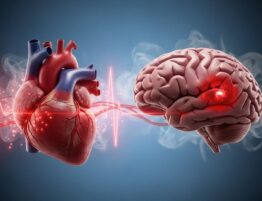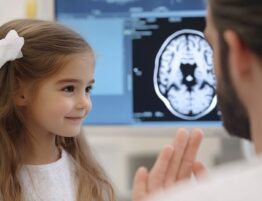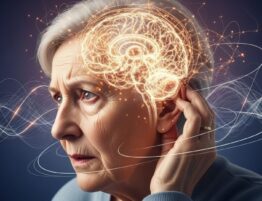Your brain needs exercise just as much as your muscles do. While most people understand that physical activity keeps their heart healthy and muscles strong, fewer realize the powerful connection between movement and brain function. Exercise and brain health are intimately linked in ways that scientists are only beginning to understand fully.
When you exercise, your brain receives increased blood flow, delivering oxygen and nutrients that keep your nerve cells healthy. This improved circulation helps your brain work more efficiently and protects it from age-related decline. Physical activity also triggers the release of special proteins called growth factors that help brain cells grow and form new connections.
The relationship between exercise and brain health extends beyond just feeling good after a workout. Physical activity can actually change the structure of your brain, increasing the size of areas responsible for memory and learning. This means that every time you move your body, you’re literally building a stronger, more resilient brain.
Modern research indicates that even moderate exercise can yield substantial neurological benefits. You don’t need to become a marathon runner or spend hours in the gym. Simple activities like walking, swimming, or gardening can make a meaningful difference in your brain health when done consistently.
Your Nervous System’s Best Friend: How Exercise Transforms Your Brain
The benefits of exercise for nervous system function are both immediate and long-lasting. When you engage in physical activity, your nervous system responds in remarkable ways that support overall brain health and cognitive performance.
Exercise increases the production of new brain cells, a process called neurogenesis. This is particularly important in the hippocampus, the brain region responsible for learning and memory. More new brain cells mean better capacity for forming and storing memories throughout your life.
Physical activity also strengthens the connections between brain cells. These connections, called synapses, are like highways that allow information to travel quickly and efficiently throughout your nervous system. Stronger connections lead to faster thinking and improved problem-solving abilities.
The benefits of exercise for the nervous system include improved brain plasticity, which is your brain’s ability to adapt and reorganize itself. This flexibility helps your brain recover from injuries, learn new skills, and maintain function as you age. Exercise essentially keeps your brain young and adaptable.
Regular movement reduces inflammation throughout your nervous system. Chronic inflammation can damage brain cells and contribute to cognitive decline. By keeping inflammation in check, exercise helps protect your brain from harm and maintain optimal function.
Memory Magic: How Movement Supercharges Your Recall
Understanding how physical activity improves memory reveals one of exercise’s most impressive benefits. When you move your body, you trigger a chain reaction of events that enhances your ability to form, store, and retrieve memories.
Exercise increases blood flow to the hippocampus, your brain’s primary memory center. This increased circulation delivers more oxygen and glucose, the fuel your brain cells need to function optimally. With better fuel supply, memory-forming processes work more efficiently.
Physical activity triggers the release of BDNF, often referred to as “Miracle-Gro for the brain.” This protein promotes the growth of new neurons and helps existing brain cells form stronger connections. These structural changes directly translate to improved memory capacity and recall ability.
How physical activity improves memory also involves the timing of exercise relative to learning. Research indicates that exercising before studying can enhance focus and attention, facilitating the encoding of new information. Exercising after learning helps consolidate memories, making them more likely to stick.
Different types of exercise may benefit different aspects of memory:
- Aerobic exercise enhances working memory and executive function
- Resistance training improves associative memory and cognitive flexibility
- Coordination activities boost spatial memory and processing speed
- Yoga and tai chi enhance attention and mindfulness-related memory processes
The memory benefits of exercise aren’t just temporary. Regular physical activity creates lasting changes in brain structure that support lifelong memory function and may help prevent age-related memory decline.
Healing in Motion: Exercise as Brain Medicine
Exercise and neurological recovery work together in powerful ways to help the brain heal from injury and overcome challenges. Whether dealing with stroke, traumatic brain injury, or neurodegenerative conditions, physical activity plays a crucial role in the recovery process.
After a brain injury, exercise promotes neuroplasticity—the brain’s remarkable ability to rewire itself and form new pathways around damaged areas. This rewiring enables healthy parts of the brain to assume functions previously handled by injured regions.
Exercise and neurological recovery also involve the growth of new blood vessels in the brain, a process called angiogenesis. These new blood vessels provide alternative routes for oxygen and nutrients to reach brain tissue, supporting healing and function.
Physical activity helps reduce secondary damage that can occur after a brain injury. Exercise helps control inflammation, prevents the death of additional brain cells, and promotes the removal of harmful substances that accumulate after injury.
For people with conditions like Parkinson’s disease or multiple sclerosis, exercise can help maintain function and slow progression. Regular physical activity enhances balance, coordination, and motor control, while also supporting overall brain health.
The Ultimate Brain Workout: Top Exercises for Cognitive Power
When it comes to the best exercises for brain function, variety is key. Different types of physical activity stimulate various aspects of brain health, so a well-rounded exercise program provides the most comprehensive benefits.
Aerobic exercises are among the best exercises for brain function because they increase heart rate and blood flow to the brain, thereby enhancing cognitive function. These activities include:
- Walking or jogging. Accessible to most people and easily adjustable for fitness level.
- Swimming. Provides a full-body workout while being gentle on joints.
- Cycling. Improves cardiovascular health while engaging balance and coordination.
- Dancing. Combines aerobic exercise with complex movements that challenge the brain.
Strength training also ranks among the best exercises for brain function. Resistance exercises help maintain muscle mass while stimulating the production of growth factors that benefit brain health. Weight lifting, resistance bands, and bodyweight exercises all provide these benefits.
Coordination and balance activities challenge your brain to process complex movement patterns. These exercises include tai chi, yoga, martial arts, and sports that require quick reactions and precise movements. Such activities strengthen the connections between different brain regions.
High-intensity interval training (HIIT) offers significant brain benefits in a shorter time period. Alternating between intense exercise and recovery periods stimulates the production of BDNF and other brain-boosting chemicals more effectively than steady-state exercise.
Building a Brain-Healthy Future: The Long-Term Impact of Consistent Movement
Long-term neurological health depends heavily on maintaining regular physical activity throughout life. The brain changes that result from consistent exercise accumulate over time, creating a protective effect against age-related cognitive decline and neurodegenerative diseases.
People who exercise regularly throughout their lives maintain larger brain volumes in areas crucial for thinking and memory. These structural differences become more pronounced with age, suggesting that the protective effects of exercise increase over time rather than diminish.
Consistent physical activity helps maintain the brain’s white matter, which consists of the connections between different brain regions. Better white matter integrity means more efficient communication within the brain and preserved cognitive function as you age.
Long-term exercise also supports the brain’s ability to clear out harmful proteins that accumulate with age. These proteins, including amyloid and tau, are associated with Alzheimer’s disease and other forms of dementia. Regular physical activity helps prevent their buildup.
The cardiovascular benefits of long-term exercise directly support brain health. A strong heart and healthy blood vessels ensure that your brain receives adequate oxygen and nutrients throughout your life. This steady supply prevents the small strokes and reduced blood flow that can contribute to cognitive decline.
Your Brain Deserves the Best: Start Moving Today
Your brain is your most valuable asset, and it deserves the same care and attention you give to the rest of your body. The evidence is clear: regular physical activity is one of the most powerful tools available for maintaining and improving brain health throughout your life.
The beauty of exercise for brain health is that you don’t need expensive equipment, special facilities, or advanced training to get started. Simple activities, such as walking, climbing stairs, or playing with grandchildren, can provide meaningful benefits when done regularly.
Remember that consistency matters more than intensity. A moderate exercise program that you can maintain over the long term will provide greater brain benefits than sporadic, intense workouts. Start with activities you enjoy and gradually build up your routine as your fitness improves.
Exercise and brain health research continues to reveal new benefits and optimal approaches. What remains constant is the fundamental truth that moving your body is one of the best things you can do for your brain. Whether you’re looking to improve memory, prevent cognitive decline, or support recovery from neurological challenges, physical activity should be a cornerstone of your brain health strategy.
Don’t wait for the perfect time or the ideal exercise program. Start today with whatever movement feels manageable and enjoyable. Your brain will thank you for every step, every stretch, and every moment of activity you provide. The investment you make in physical activity today will pay dividends in cognitive health for years to come.












Please, leave your review
Write a comment: